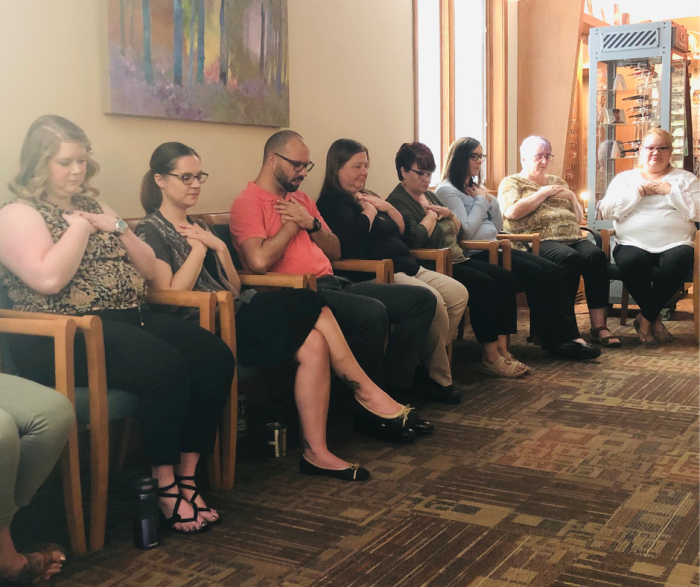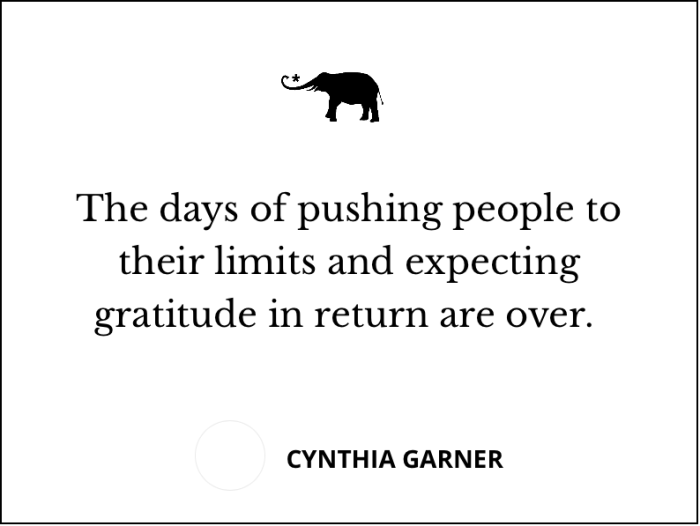
Work Shouldn’t Cost Us Our Wellbeing—But It Does.
We are not meant to spend our lives in a constant state of depletion. Yet, too many workplaces operate on a model that demands more than it gives, leaving people stretched thin, exhausted, and questioning if they can keep going.
New research from Indeed’s Global Work Wellbeing Report 2024 confirms what many of us already feel in our bones: the state of work is unsustainable.
78% percent of workers report lower wellbeing. 59% percent feel stressed most of the time. These aren’t just numbers. They represent real people who wake up dreading the day ahead, who leave work feeling empty, who have nothing left to give to their families, their communities, or themselves.
This is not normal. And we should stop pretending it is.
For decades, workplace culture has been built on endurance—push through, produce more, deal with it. But endurance is not the same as thriving. The cost of this relentless pace is staggering: chronic stress, burnout, disconnection, and entire industries hemorrhaging talent.
Educators are walking away from classrooms they once loved. Healthcare workers are burned out beyond repair. Corporate employees are disengaging at record rates. The systems we rely on to function—schools, hospitals, businesses—are being drained from the inside out.
The good news? This is not an unsolvable crisis. Workplaces that prioritize wellbeing don’t just retain employees—they create environments where people are energized, engaged, and able to bring their full capacity to their work. And when that happens, everything changes.
What actually creates a healthy workplace?
Wellbeing at work is not about free coffee, wellness apps, or an occasional “mental health day.” The Global Work Wellbeing Report pinpoints the real drivers of workplace wellbeing:
>> Belonging–do employees feel valued and included?
>> Psychological safety–can they speak openly and be heard?
>> Meaningful relationships–are they connected to colleagues and leaders in real, human ways?
>> Energy at work–do they feel that their work fuels them rather than drains them?
When these needs are met, people do their best work. When they aren’t, no amount of perks or incentives will fix what’s broken.
This is not about grand gestures or overhauling entire organizations overnight. It’s about committing, every day, to the small, tangible shifts that make work a place where people can thrive instead of just endure.
Here’s where leaders can start:
>> Listen before making assumptions. Too often, workplace wellbeing initiatives fail because they don’t address what employees actually need. Start by asking—what’s depleting your team? What would make the biggest difference? Then act on what you hear.
>> Shift the culture from fear to trust. People can’t do their best work if they’re constantly afraid of making mistakes or speaking up. A culture of trust means leaders model honesty, admit when they don’t have the answers, and invite employees to do the same.
>> Recognize that people are not machines. High performance doesn’t come from pushing harder—it comes from working in ways that are sustainable. A workplace that supports breaks, flexibility, and energy-giving work will always outperform one that runs people into the ground.
>> Measure what matters. If the only metrics that matter are output and efficiency, you’ll miss the bigger picture. Employee wellbeing is measurable—track engagement, stress levels, and retention rates as seriously as you track productivity.
The truth is, people are done sacrificing themselves for work that doesn’t sustain them.
They are done being treated as expendable.
The days of pushing people to their limits and expecting gratitude in return are over.
Leaders have a choice to make. Will they continue operating under outdated models that treat employees as resources to be used up and replaced? Or will they wake up to the reality that a thriving workplace isn’t just good for people—it’s the only way forward?
The future of work is being created right now. Every decision, every policy, every conversation contributes to what we are building. Let’s make it a future where people are sustained by their work—not broken by it.
Because workplaces that care for their people don’t just perform better—they create a better world.
~
author: Cynthia Garner
Image: Personal Image
Editor: Molly Murphy
 Share on bsky
Share on bsky

This account does not have permission to comment on Elephant Journal.
Contact support with questions.